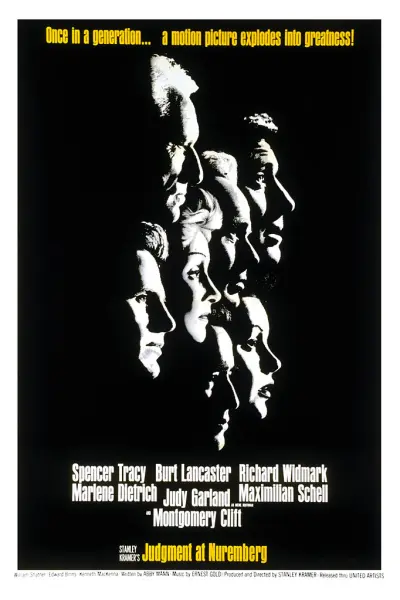
"Judgment at Nuremberg," a 1961 courtroom epic directed by Stanley Kramer, offers a profound exploration of justice and morality in the post-World War II era. Set in Nuremberg, West Germany, the film presents a dramatized version of the Judges' Trial, part of the Nuremberg Military Tribunals. It centers on a military tribunal led by Chief Trial Judge Dan Haywood, judging four German judges and prosecutors accused of crimes against humanity under the Nazi regime.
The film's narrative delves deeply into themes of individual and collective responsibility for the Holocaust, set against the tense backdrop of the Cold War and the Berlin Blockade. Haywood's quest to understand the defendants' actions, particularly Ernst Janning, a respected jurist, forms the crux of the story. This quest leads him to interact with various characters, offering a spectrum of perspectives on the war and the Nazi regime's crimes.
A key moment is Janning's admission of guilt, highlighting the central theme of Germany's complicity and collective guilt. The defense attorney Hans Rolfe raises controversial points, challenging the moral authority of the tribunal by comparing the actions of other nations, including the United States, to those of the Nazis. This adds a complex layer of moral ambiguity to the film.
The conclusion of the film presents a nuanced view of the defendants' reactions to their charges and sentences, ranging from remorse to unrepentant denial. The final interaction between Haywood and Janning emphasizes the gravity of decisions made in the pursuit of justice.
"Judgment at Nuremberg" is a cinematic masterpiece that portrays a pivotal historical event and prompts reflection on the intricate dynamics of justice, responsibility, and the human capacity for good and evil in times of moral crisis.

